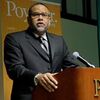Dr. Jack Rasmus, professor in the economics and politics departments at Saint Mary's College of California, joins us to discuss COVID-19 economic relief in the United States. Sen. Joe Machin (D-WV) is causing a stir on Capitol Hill as he argues that he will not support legislation unless it is bipartisan. The conservative, West Virginia Democrat is viewed as the senator who will make or break any deal. Also, corporate lobbyists are pressing Democratic leadership to apply means-testing to any relief checks and minimize the number of people eligible.
Dan Kovalik, a labor and human rights lawyer, professor, and author, returns to The Critical Hour to discuss Iran. As the US dismisses Iran's offer to coordinate a return to the nuclear deal, Chinese Foreign Ministry spokesperson Wang Wenbin said that his nation supports "the unconditional return of the United States to the JCPOA as early as possible, its resumption of compliance and elimination of all relevant sanctions." Also, in regards to Iran, Thomas Knapp writes an article in which he asks whether Biden will serve Obama's third term or Trump's second.
Elisabeth Myers, lawyer, former editor-in-chief of Inside Arabia, and Democracy Lead for Democrats Abroad joins us to discuss Yemen. The Trump administration's designation of Ansar Allah as a terrorist organization seems to be spectacularly backfiring. The move has dramatically increased support for the group both inside and outside of Yemen and has destroyed US diplomatic credibility and its prospects to be involved in future mediations.
Dr. Emmitt Riley, a political scientist and assistant professor of Africana studies at DePauw University, joins us to talk about the GOP's response to the strange antics of Congresswoman Marjorie Taylor Greene (R-GA). A late-night meeting called by House Minority Leader Kevin McCarthy (R-CA) failed to produce a plan of action as Republicans continue to deliberate over the contentious freshman representative. Insiders leak that the GOP wants to take action but are hesitant to set a precedent of punishing a member for actions that occurred before they took office.
Dan Lazare, investigative journalist and author of "The Velvet Coup: The Constitution, the Supreme Court and the Decline of American Democracy," joins us to talk about US-Russia relations. The Biden administration is sending B-1 Lancer bombers along with 200 airmen to Norway. Though US bombers have previously flown alongside Norwegian aircraft, this marks the first time planes will be physically deployed and stationed on Norwegian soil. This appears to be part of the Biden plan to expand the US military footprint in the Arctic and further confront Russia. Also, Russia's Foreign Ministry spokesperson Maria Zakharova stated that she believes the US will find or invent reasons to levy new sanctions against Russia and that Moscow will respond in a public, well-reasoned manner.
Ted Rall, political cartoonist and syndicated columnist, joins us to talk about the social media crackdown on free speech. A conference on media censorship called "The Critical Media Literacy Conference of the Americas" was ironically censored and completely erased from YouTube. Mickey Huff, the director of the organization Project Censored, which sponsored the event, said that the entire channel was deleted and no reason was provided by the tech giant. Additionally, Twitter has banned the account of the My Pillow corporation after banned CEO Mike Lindell used the account for personal tweets.
Teri Mattson, the Latin America coordinator for Code Pink, joins us to talk about Venezuela. A plotter in the botched May 2020 invasion and coup attempt in Venezuela has fingered US and Colombian officials as having been involved. Yacsy Álvarez, a central figure in the plot, said that she met with officials from the FBI and DEA in Florida and received assistance from Colombian President Iván Duque and his mentor Álvaro Uribe. Álvarez detailed the Colombian and US government's involvement in the operation.
KJ Noh, peace activist, writer and teacher, joins us to discuss the Davos speeches by Russian President Vladimir Putin and Chinese President Xi Jinping. Putin said the novel coronavirus had accelerated several pre-existing structural problems in the world economy. Meanwhile, Xi said the world needed to “abandon ideological prejudice, and jointly follow a path of peaceful coexistence, mutual benefit, and (using a phrase with which he is identified) win-win cooperation.”
We'd love to get your feedback at radio@sputniknews.com





